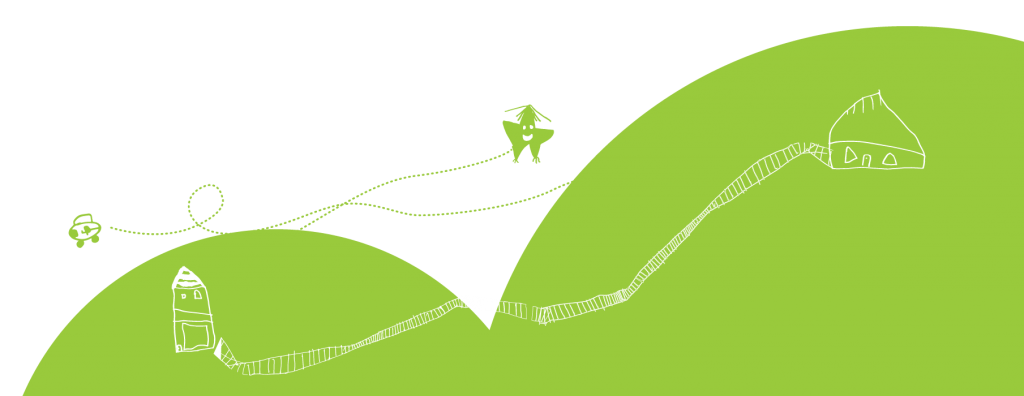Our Learning Environments
The School of Early Learning Centres are architecturally designed to be both aesthetically pleasing and educationally supportive. All of our physical environments are warm, inviting, and open to change, decorated with muted and peaceful colours, and provide easy access to outdoor play areas. A multi-purpose central piazza serves as each building’s heart, incorporating kitchen and dining areas. This provides a place to come together for both meals and activities.
“Children learn in a prepared environment, through self-initiated and self-paced activity and respect for people and the environment.” xvi
Children of every age group help set up their outdoor space every morning. During the day they rearrange, add, and put away materials. This ability to control and change their environment fosters a sense of ownership and responsibility. Children mentor one another, introducing their peers to the environment and passing on their knowledge and experience. They develop deeper insights into what they have learned by teaching it to others, and respect their environment because they are invested in its creation and care.
The older children think about and plan their environments, gathering and preparing resources and rearranging them to suit their desired experience. They are encouraged to tidy up after themselves in readiness for the next person, so that they can have a positive encounter with that space and gain an understanding of the concepts and knowledge that are hiding there. We believe clutter and disorganisation disrupt the child’s ability to focus on their task, whereas beauty and order allow the child both the physical and intellectual space to explore.
Our Programmes
Our learning programmes are developed based on observations of the children. Staff document the children’s learning, combining anecdotes, photographs, videos and audio-recordings to gain a picture of individual children and their interactions and relationships. Predictions are made as to where the children’s interests may lead, what skills and knowledge are required and how the interests may be expressed.
Literacy and numeracy are natural consequences of this inquiry based approach to learning. Through research, investigation, exploration, planning, designing and hypothesising, children read, experiment, imagine and create.
The children’s discoveries and the meaning they make of them are recorded in drawings, photographs, writing, measuring, spatial organisation, graphs and numbers. Working collaboratively, children develop skills in working with others, communicating, making choices and sharing knowledge.
Books, songs, rhymes, chants and dances provide opportunities for children to develop skills in listening, managing themselves and being part of a group. Children are also encouraged to develop independence, take responsibility for their own actions and find solutions to problems.
All programmes incorporate the Early Years Learning Framework and the learning outcomes.
Children need safe, secure environments that both challenge and stimulate. We provide beautiful and well thought out environments which the children become directly involved in creating and caring for.








